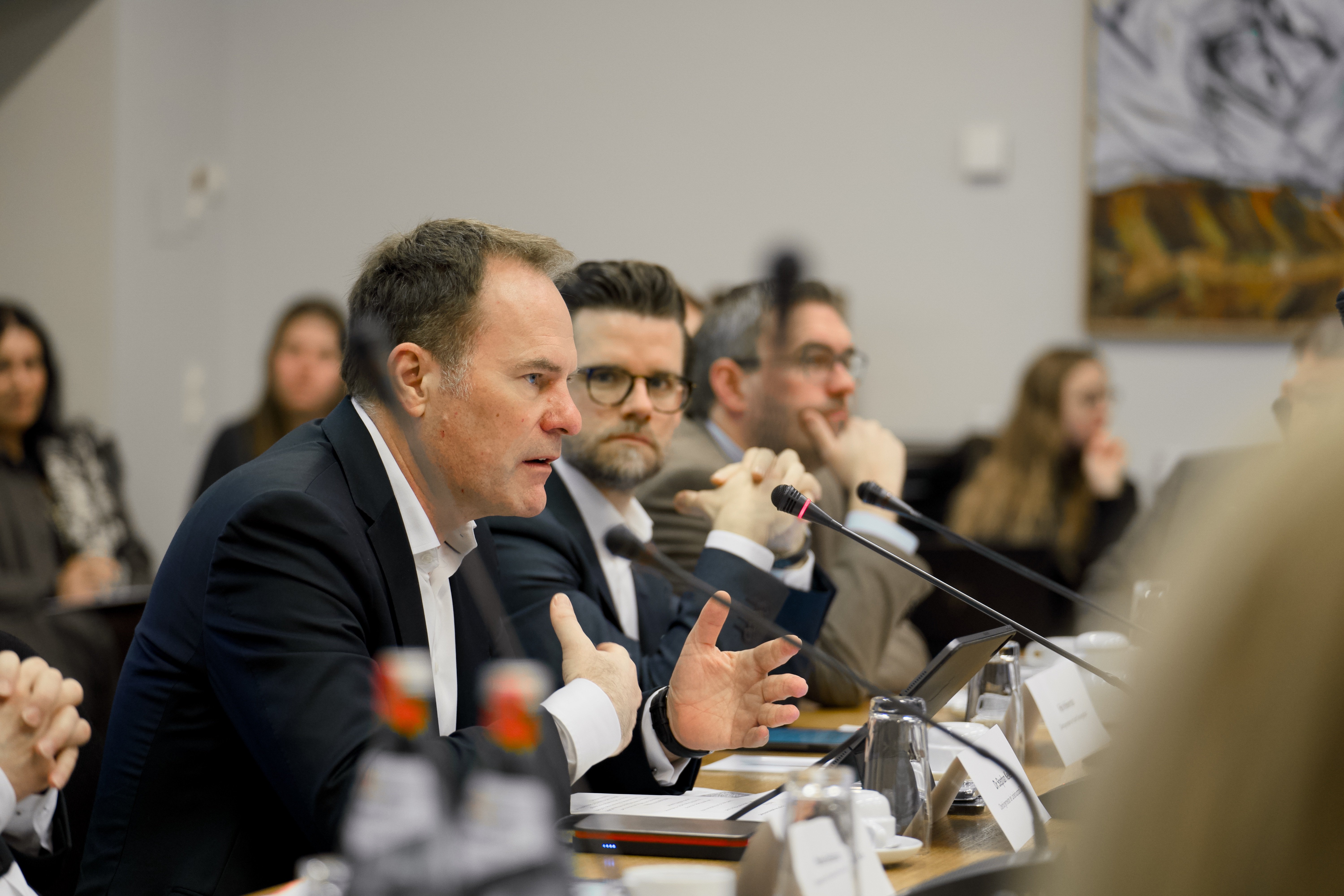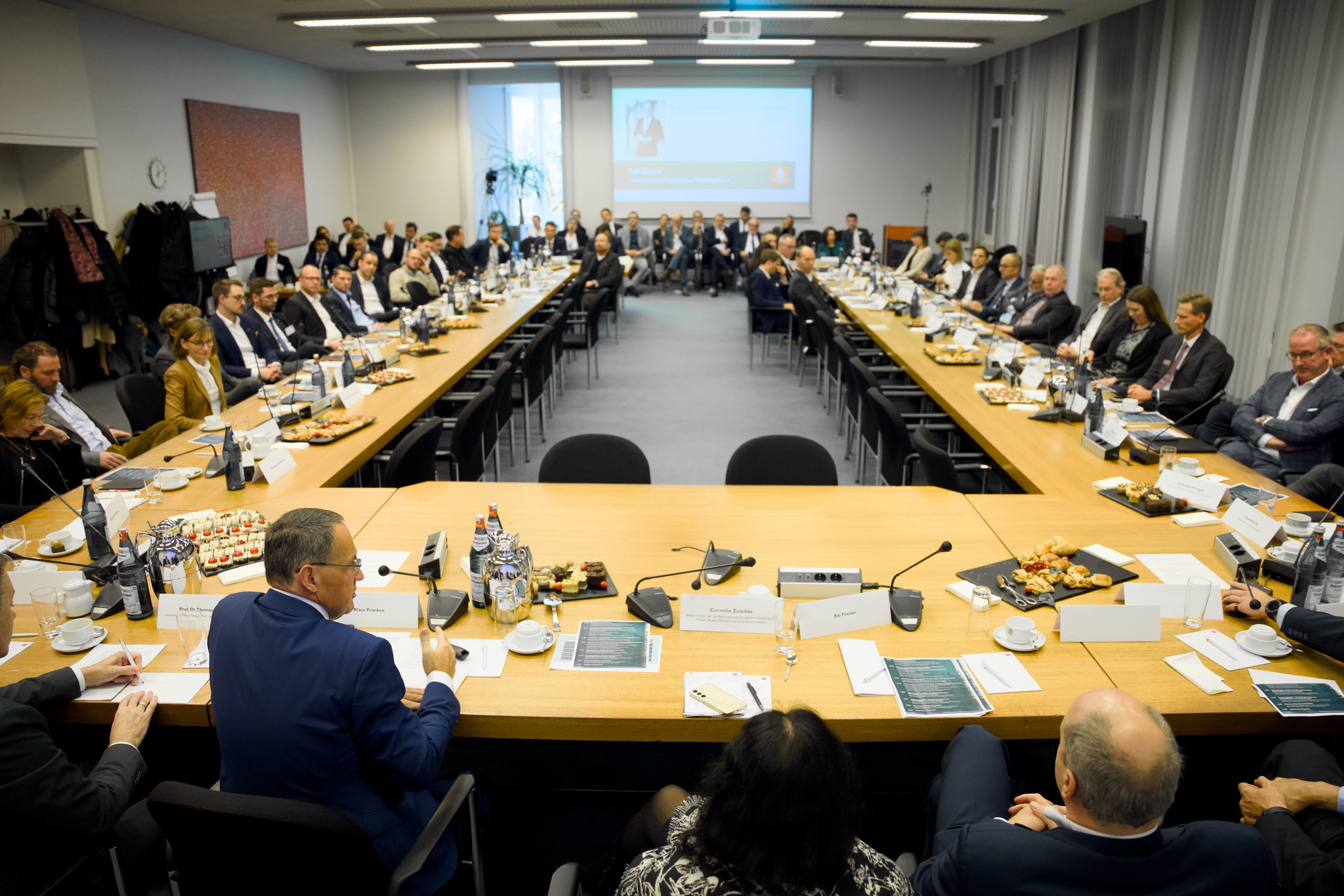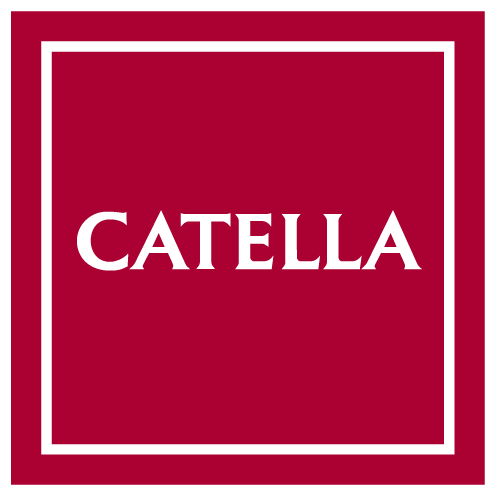Catella takes a cooperative and innovative approach to residential construction, making it affordable and profitable. What is considered a challenge in the current market environment is made possible with 12 solution modules and partnership constellations, as the first project implementations show. Catella Project Management discussed the realization of around 5,000 apartments in the Rhineland with around 100 key players from politics, administration, the construction industry, banks, investors and academia at a non-public conference in Düsseldorf City Hall.
The conference was opened by Lord Mayor Dr. Stephan Keller (Düsseldorf), the Head of the Building Department Markus Greitemann (Cologne), Lord Mayor Felix Heinrichs (Mönchengladbach) and the Mayors Erik Lierenfeld (Dormagen) and Christoph Schultz (Erkrath). Cornelia Zuschke (Düsseldorf), Head of the Building Department, gave the closing words and summary. In addition to around 20 banks, international, national and regional investors were also represented. Participation was by invitation only. Behind closed doors, concrete discussions were held on cooperation, measures and projects and a starting volume of 5,000 new apartments in the Rhineland metropolitan region was agreed for the CILG program.
With the “Cooperative Innovative Living Germany (CILG)” program, Catella Project Management is sending a strong signal against the stagnating construction development in Germany and the widespread view that “housing construction is no longer affordable”. Klaus Franken from Catella emphasizes: “We have put everything to the test, planned differently, built differently, set up the process differently. Together with partners and creative innovation, residential construction can be made affordable and profitable even under the current conditions.”
Local authorities face a major challenge in combating the housing shortage, which cannot be overcome without the active involvement of private investors, banks and the construction industry. The city leaders present agreed that old thinking must be thrown overboard in order to create new living space. Cornelia Zuschke, Councillor for Planning, Building, Housing and Property of the state capital Düsseldorf, sees cooperation as a solution: “All those who are motivated and have any kind of responsibility must work together with all forces on the issue of housing construction. It is good that we are discussing this in the region today, because for the people who need housing, this is a regional issue, not a local one.” The cities and municipalities must also be creative, innovative and cooperative beyond their own city limits in order to make housing affordable for nurses and firefighters in the future.
“We can't carry on with housing construction as before,” sums up Dr. Stephan Keller, Lord Mayor of the state capital Düsseldorf. “We are far too slow to meet the needs that we have in the cities. That's why I think it's great that Catella is bringing people together who are working on a solution, who are thinking about how we can make faster progress, how we can make more affordable progress, how we can perhaps actually achieve better conditions through serial construction, through modular construction in large quantities.” The municipalities and cities also want to create better conditions, assures Felix Heinrichs, Lord Mayor of Mönchengladbach: “We want to do everything we can to ensure that there are good plots of land, that investors are served quickly here locally, that good and fast approvals can be granted and that we can thus play our part in ensuring that people enjoy living here in the Rhineland.” Mayors Erik Lierenfeld (Dormagen) and Christoph Schultz (Erkrath) have also confirmed that they will each push ahead with residential construction on a significant scale. “To achieve this, it is important,” said Markus Greitemann, Alderman for Planning and Building of the City of Cologne, ”that we forge an alliance so that the triad between administration, politics and the housing industry works in the end.” Greitemann made a final appeal to the banks and financiers to become more open again in order to stimulate investment.
The banks present picked up the ball and promised support for this housing initiative. Henrietta Six, Board Member of Stadtsparkasse Düsseldorf, explains: “We are on the side of investors when it comes to financing, but also on the side of private individuals with public funding and advice, so that dreams can be realized and we can fulfill our task of creating sufficient living space.” Christoph Wintgen, Spokesman of the Management Board of Kreissparkasse Düsseldorf, confirms: “Today was a really great initiative by Catella. It was important for us today to make a statement that there are many financiers on the market who are able to continue to support project financing, property development issues, etc.” And Michael Schmidt-Russnak, Deutsche Pfandbriefbank, praised: “Solutions were sought and solutions were identified.”
Dr. Hans Wilhelm Korfmacher, Chairman of the Club of Finance, believes from an investor's perspective that there is enough money available on the market if reasonable returns are to be achieved. To ensure this, a new way of thinking is needed. “A key insight from the conference is that we simply have to try to align interests better. We certainly need to move away from some nice things and build in a way that people can actually afford.” Investors are ready and will take away from the conference the realization that this approach creates a high degree of investment security.
Sustainability was also a central, shared concern of the participants. “We have the energy transition, the heating transition and the mobility transition at the same time,” emphasized Raphael Jungbauer, Managing Director of Stadtentfalter GmbH. “We therefore need good concepts and if the real estate industry works closely with the energy industry and local authorities and investors also provide their funds, then we can ensure today that we make today's innovation the standard of tomorrow and thus also save immense costs in rental apartments and residential construction.” The Catella neighborhood developments Seestadt and Düssel-Terrassen were explained as examples with their own regenerative energy system - they are the two largest certified KlimaQuartiers in the country.
Werner Knips, Deputy Chairman of the ICG, sees the forum as the ideal environment for jointly generating projects via social impact investment that create social and societal benefits, meet ecological standards and at the same time generate a reasonable return for the investing company.
Prof. Dr. Thomas Beyerle, Biberach University of Applied Sciences, Faculty of Business Administration, Construction and Real Estate Management, is delighted to have moderated the initiative alongside Klaus Franken. “For the first time in the Rhineland, something that fits together was brought together in a voluntary and very open manner. The conference was characterized by a very broad range of activities from the real estate industry and high-ranking market players who want to make a difference together. You could see and feel that today!”
Sofia Watt, Chairperson of the Supervisory Board of Catella AB, also attended the conference and emphasized: “Catella has a strong conviction in the German residential market and has been investing in this base for more than ten years now and have roughly €8 billion under management. We continue to see a lot of potential and are actively looking for new investments.” NASDAQ-listed Catella AB is headquartered in Stockholm, Sweden and provides the seed capital for the projects realized under the CILG program in Germany.
Klaus Franken sums up: “The CILG investment program is nationwide and we have just launched a new project in Berlin, for example. We chose the Rhineland metropolitan region for the conference, not only because of its role as the largest metropolitan area in Germany, but also because cooperation with cities and partners has been extensively and successfully tested here. The references we have built are a good basis for building trust in new residential construction. We are open to new partnerships and are happy to welcome anyone who does not want to miss the right time to get started.”
About “Cooperative Innovative Living Germany (CILG)”
In order to achieve the common goal of making residential construction affordable, Catella is implementing various innovations with “Cooperative Innovative Living Germany” (CILG program): Things are planned differently, built differently and the entire process is set up differently. With modular processes and sustainable concepts, CILG is revolutionizing residential construction and creating attractive investment opportunities.
CILG is an innovative investment program that focuses on strategic partnerships, industrial construction and the highest ESG standards. The aim is to provide affordable living space in Germany's swarm cities.
CILG aims to create housing for all age groups and focuses on age-independent, barrier-free living. “With the Südviertel district in Seestadt, we have already created a successful model that shows how sustainable and needs-based housing construction works,” explains Klaus Franken. In the coming years, around 10,000 new residential units are to be created in Germany, 5,000 of them in the Rhineland metropolitan region alone. Further information on the Catella CILG program can be found at: https://www.cilg-invest.com (further information will be provided in the coming days and as the investment program progresses).
About Catella Project Management
Catella creates living spaces: Catella Project Management develops new neighborhoods with a long-term perspective. The company implements the concept of the “10-minute city”, with a mix of commercial and residential uses, attractive living space for everyone, a sustainable working environment and diversity that ensures the sustainable value of the neighborhood. New mobility concepts make it possible to give people back the open space in the city; the areas between the buildings are landscaped and designed for people to stay and meet. The districts developed by Catella are in central locations, are planned to be both car-friendly and car-poor and are designed to be forward-looking overall. The guidelines of the ICG's Social Impact Investing Initiative, which Catella Project Management helped to develop and finance, won the imAward in the Social Responsibility category in 2022. With the Catella program “Cooperative Innovative Living Germany” (CILG), Catella developed a construction kit with 12 tools - innovation and cooperation are the keywords here.
Previous projects include Living Circle in Düsseldorf, Living Lyon in Frankfurt and various commercial projects, such as the C&A headquarters and Telekom's largest service center. The Seestadt and Düssel-Terrassen district developments are the two largest certified KlimaQuartiere.NRW projects in NRW. Around 4,000 new apartments are currently being built in the Rhineland alone, including 147 subsidized apartments in Grand Central at Düsseldorf Central Station, which will be completed in autumn 2023. Catella Project Management is part of the Catella Group, Stockholm, a leading real estate investment and fund management specialist with offices in 12 countries. The group has assets under management of around 13 billion euros. Catella is listed on Nasdaq Stockholm in the Mid Cap segment.


Download press release in PDF format
Press Contact
Klaus Franken
+ 49 211 90 99 35 10
+49 172 3181210
